Article
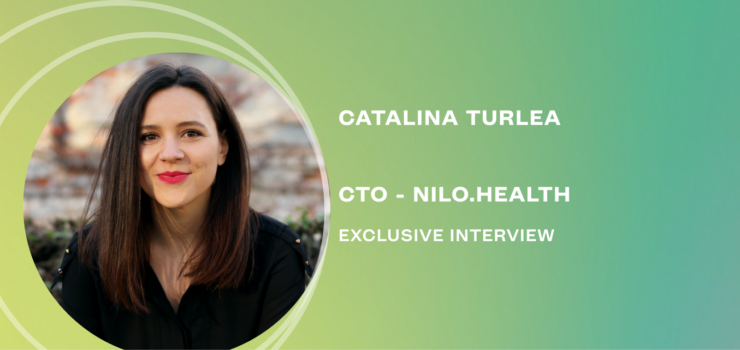
Merging Tech and Care to Empower Employee Well-being: An Interview with Catalina Turlea, CTO of nilo.health
As the significance of mental health awareness and support gains undeniable momentum, a Berlin-based startup, nilo.health, remains at the forefront of this transformative movement. They envision a future where mental well-being in Europe becomes an essential employee benefit, transcending geographical boundaries and mirroring trends observed in global markets.
Among the leaders of this journey is Catalina Turlea, the CTO and co-founder of nilo.health. With a decade-long experience in software development, Catalina brings to the fore her profound expertise, steering the company’s mission to redefine mental health support within the digital landscape. Her leadership exemplifies the seamless integration of technological innovation and empathetic care, forging a path toward the future of mental health solutions.
In this forthcoming interview, we embark on a journey through Catalina’s trajectory and the evolution of nilo.health. From her tech-savvy roots to the platform’s visionary approach, join us as we explore how Catalina is not just influencing but revolutionizing the field of mental health support.
1. Hi, Cata! It’s a pleasure to have you here. Could you please briefly introduce yourself and tell us a bit about your personal journey?
Of course! Thank you for having me. I’m Cata, one of the co-founders and the CTO at nilo.health. My journey in software development spans over ten years, primarily focused on mobile development before starting nilo. Throughout my career, I’ve been drawn to working with startups, gaining valuable experience in various phases of their growth. Although I did have a brief stint in a larger company, I quickly realized it wasn’t the right fit for me. Since then, I’ve been involved with different startups, but co-founding nilo.health has been the most significant milestone in my career. We celebrated our fourth anniversary this August, and it has been an incredibly exciting journey so far. So, I’m glad to be here to share our experiences.
2. Can you tell us more about your role as a CTO at nilo.health including the challenges you have encountered throughout the journey?
Sure, happy to elaborate. In the beginning, being the only developer was both challenging and humbling. My background primarily focused on mobile development, but when we started nilo.health, I ventured into web app development, which was a relatively new domain for me. However, having a background in computer science helped me navigate through this transition. I adopted a serverless architecture for our backend, relying on managed services from AWS. This decision allowed us to concentrate on the unique aspects of our product and differentiate ourselves in the market.
As we grew, we secured our first funding round in November 2020, and that’s when we began expanding the team. Currently, we have two offices, one in Berlin and one in Munich, with a total of around 65 team members and a small tech team, including myself as the hands-on CTO. Staying closely involved with the teams is essential for me, as it enables me to provide the best support and guidance possible.
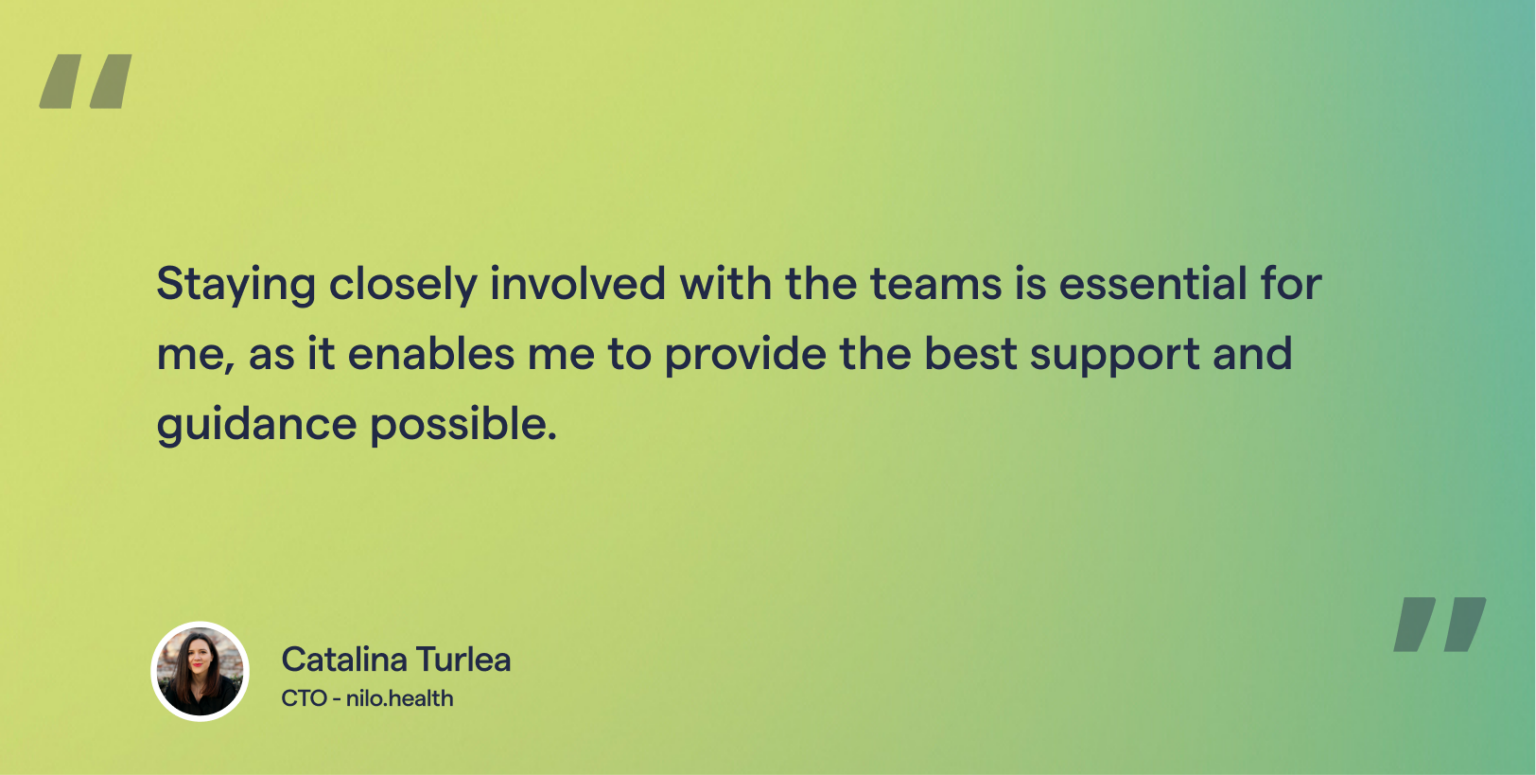
3. How do you balance innovation and risk management in your technology strategy?
As a startup, we are certainly not exempt from the various risks that all other startups have. One valuable lesson I’ve learned from my past experiences, which is relevant here, is the importance of doing the right thing. This can be a significant risk if not managed correctly. It’s crucial for us to avoid moving in a singular direction without evaluating whether it aligns with user needs, delivers value, and truly makes an impact. This is particularly important in our case, given that digital products for mental health are relatively new, and mental health itself is deeply individualized.
To address this challenge, we employ an incremental development strategy. We create initial versions, test their viability, and adapt accordingly. Admittedly, sometimes we get carried away and work on something for too long without actually testing it. However, striking the balance between innovation and user-centered outcomes remains an ongoing effort.
Another significant risk we face, inherent to the health tech domain, is security. This concern has heavily influenced our technological decisions. We’ve opted for a serverless setup, a choice rooted in enhanced security. By leveraging managed services provided by cloud platforms like AWS, we significantly reduce the variables that need careful oversight. Security and data privacy are paramount concerns. They are among the initial aspects we consider when shaping our technology landscape, and, in my role, I consider myself personally accountable for ensuring security and data privacy.
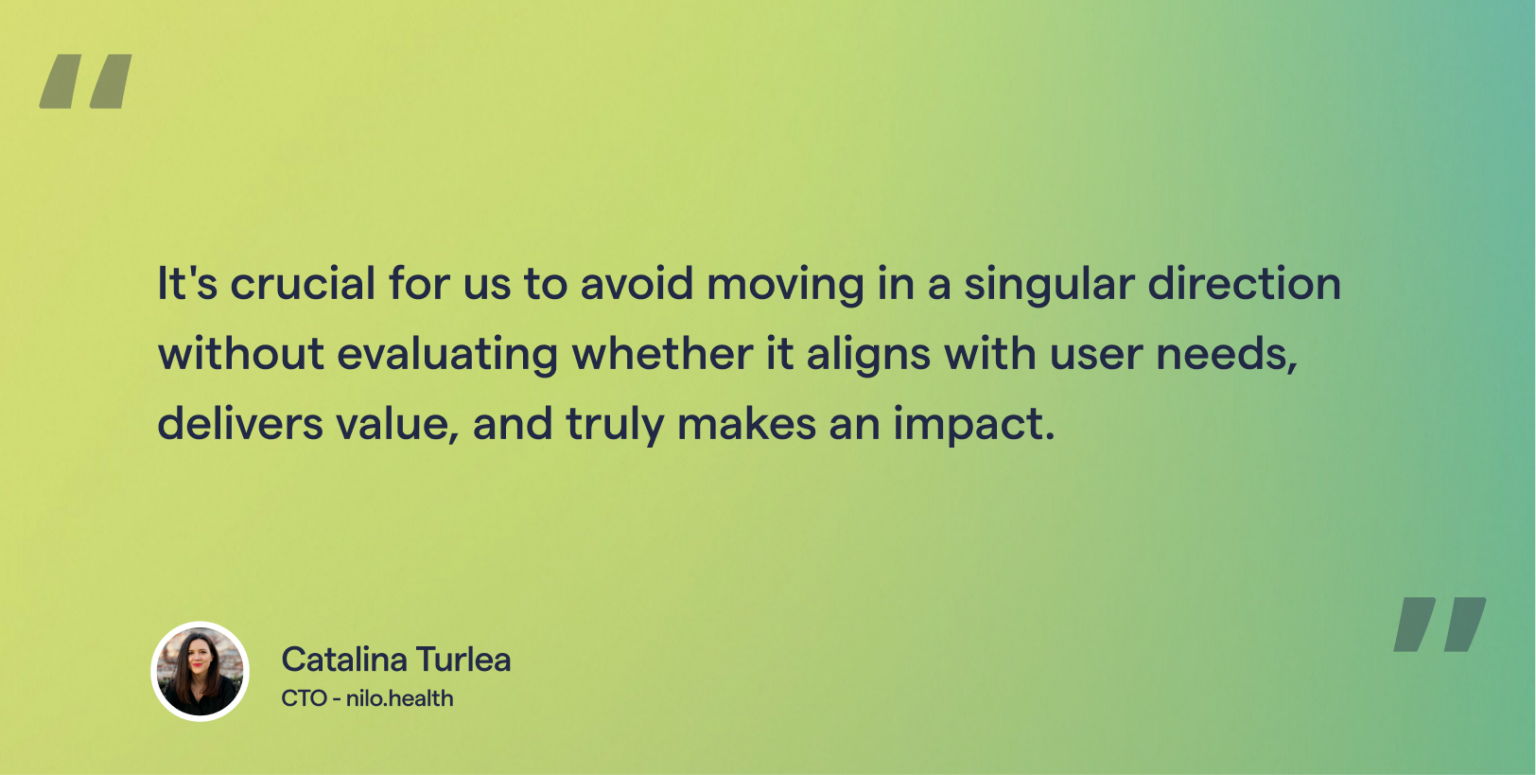
4. Can you give us an overview of the nilo.health platform and share some specific examples of innovative technologies or features integrated into your digital solutions?
Absolutely! Nilo.health is a holistic platform dedicated to providing mental health support, primarily targeted at the B2B market as an employee benefit.
We offer two significant areas of support.
The first one comprises one-on-one sessions with qualified psychologists and psychotherapists. We are proud to have around 180 experts who speak 37 different languages, ensuring that we can cater to users in various time zones across Europe and other regions.
The second core aspect of our platform is the digital content, which we refer to as self-driven digital interventions. These interventions are developed in collaboration with psychologists and psychotherapists, covering various formats such as meditations, reflections, and longer lessons with both theoretical and applied components.
Now, let me highlight some of the features that set us apart and contribute to our users’ positive experience.
One crucial innovation is our matching algorithm for one-on-one sessions. This algorithm helps us assess the specific needs of each user, determining whether they require coaching or therapy. Initially, we started with manual matching, but over time we evolved it into an algorithm, and it has been highly successful with over 90% of users satisfied with their match. Additionally, we place significant emphasis on preventive mental health support. While it’s crucial to address problems before they escalate, we also offer assistance for more critical situations. The algorithm plays a vital role in identifying the level of support needed.
Another area of constant development is personalizing the digital journey for users. We continuously improve our approach to understand what works best for each individual and provide various entry points that resonate with diverse needs. This way, users can find what they require, even if they may not be entirely sure about their specific challenges initially, such as distinguishing between stress, anxiety, or work-life balance issues.
These innovative technologies and features have been at the core of our platform since its inception. We remain committed to advancing and evolving our offerings to better serve the mental health needs of our users.
5. Could you walk us through nilo.health’s product development process? How do you identify and prioritize the features or solutions to be developed, taking into account the diverse needs of different markets that you serve?
As the CTO, one of my primary responsibilities is to ensure a smooth and constantly improving product development process. Being a relatively small team, whenever someone new joins, we adapt and find new ways to collaborate effectively.
Two fundamental values guide our decision-making process. Firstly, every feature or solution we develop must be scientifically backed and validated by psychologists. Secondly, we prioritize features that have a positive impact on users’ mental health.
Internally, the product development process involves close collaboration between the psychology team, sales team, and product team. We receive input from different sources, and conducting research is crucial to determine the most effective course of action. We do not implement features solely based on contractual obligations. Instead, our challenges are primarily related to shaping the perception of mental health in the market.
The continuous prioritization and decision-making process are influenced by various factors, including the market situation, user needs, and company goals. We strive to stay focused despite numerous potential opportunities and always strive to identify what will best benefit both our users and the company.
As a small company, I strongly believe that our team is stronger together and that integrating diverse viewpoints ultimately leads to better outcomes.
Interestingly, most of the team members at nilo.health are users of our platform, and they have a heightened awareness of mental health. This creates a unique advantage as their feedback is valuable in understanding different needs and perspectives related to mental health.
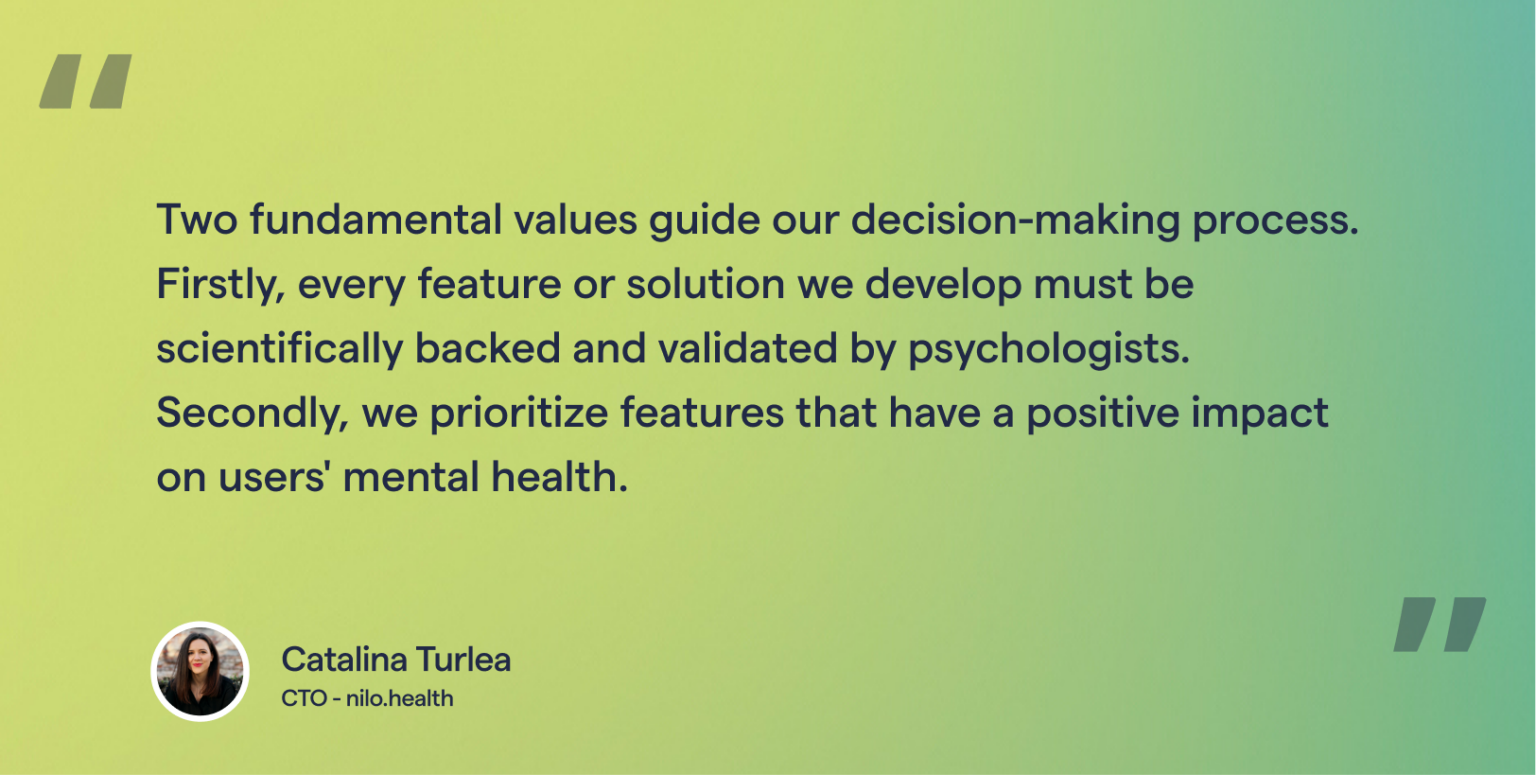
6. Where do you see the future of digital innovation in mental health heading, and what emerging technologies are you most excited about integrating into your company’s roadmap?
We firmly believe that the momentum around mental health awareness and support is only going to grow stronger. We see it as a continuous movement that will gain more recognition and acceptance in the future. While there are still some companies that may not fully grasp the importance of mental health investment, we are confident that mental health support will become a must-have employee benefit in the coming years. Similar to the trends observed in the US market, we anticipate the European market will also progress in this direction, which is something we wholeheartedly support.
It’s still perplexing for us to encounter skepticism about the necessity of mental health support. However, we faced similar doubts when we started the company before the pandemic. Now, the significance of mental health and well-being has become more evident than ever. We see a bright future where mental health is prioritized, and proactive and preventive approaches become the norm within our society.
In terms of emerging technologies, personalization is a key aspect that excites us at nilo.health. We believe that individualized journeys for each user are essential to provide effective mental health support. As we grow as a company and gather more data on how our product is used and its impact, we are eager to integrate machine learning and AI into our processes. By leveraging this technology, we can analyze data trends, identify user needs, and make personalized suggestions even better. We are currently in the early stages of exploring data analytics, and the potential it holds to enhance our product and improve user experiences is truly exciting.
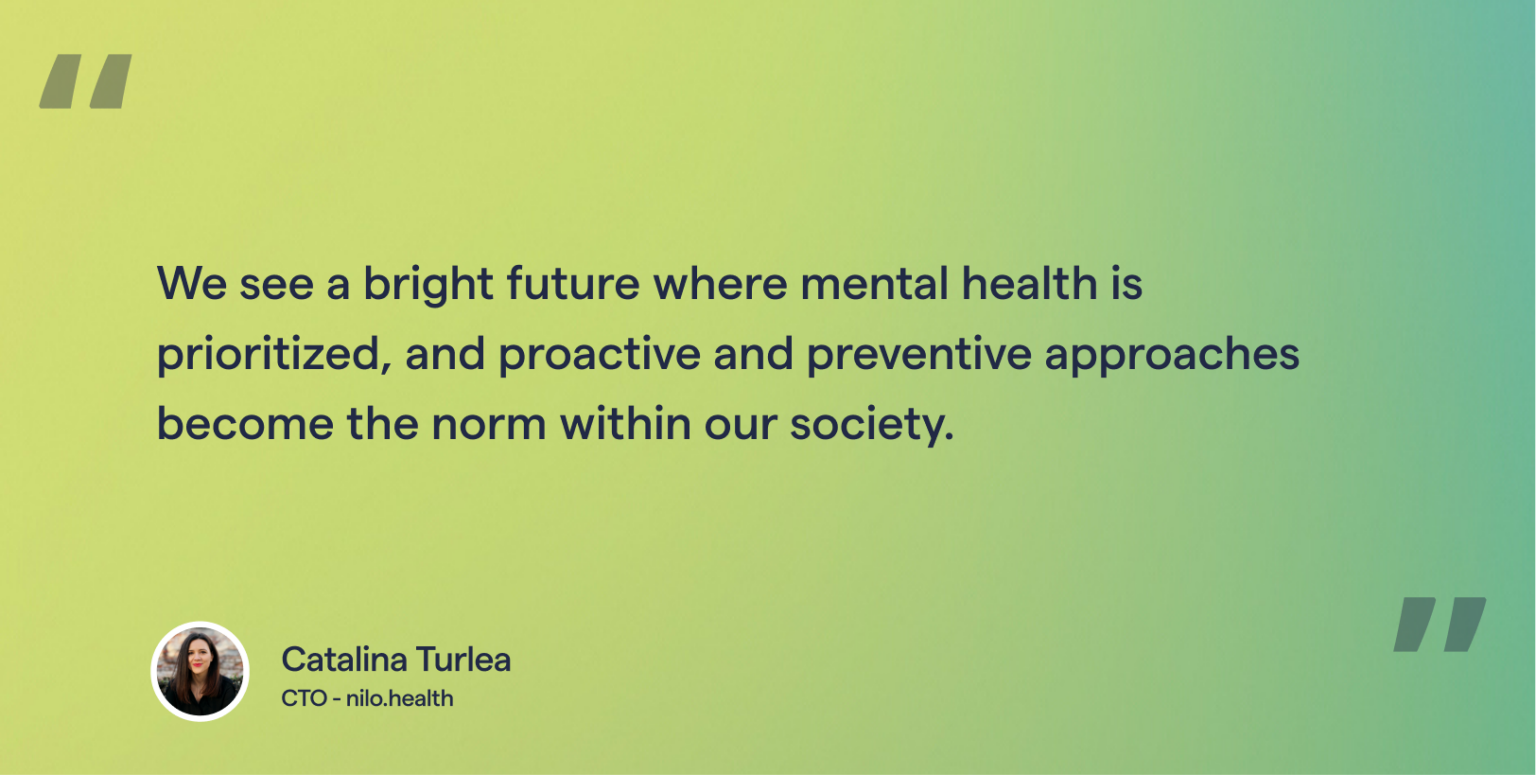
7. From your perspective, what role do strategic partnerships play in achieving stable growth and operational efficiency for your company? Additionally, could you elaborate on your current engagement or future plans to utilize external resources, such as consulting services or outsourcing of development, to foster the growth and advancement of your company?
Strategic partnerships have played a big role in our journey. We rely on various services that support startups, offering guidance and innovative suggestions. Their initial support through credits proved crucial, especially during our early stages. Initially, I sought advice from experienced colleagues and former bosses – not exactly strategic partners, but invaluable resources. They validated assumptions, streamlined architecture, and helped me avoid pitfalls.
Security being paramount, seeking external input was vital. Regular well-architected reviews provided insight into our setup. External development has been part of our strategy too; our design and mobile aspects received external support. Integrating external developers as part of our team can boost motivation and efficiency if they are well aligned with our in-house teams.
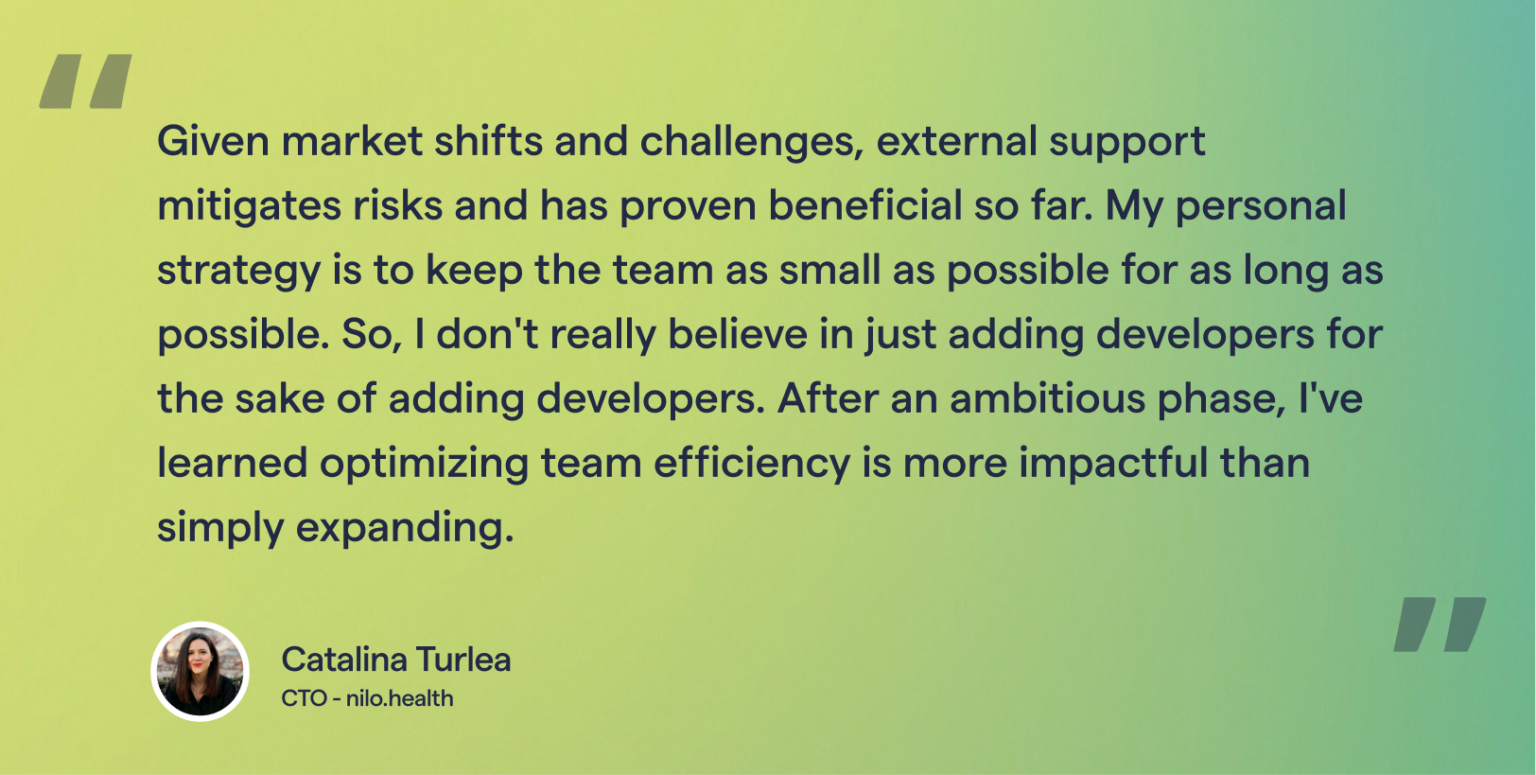
Given market shifts and challenges, external support mitigates risks and has proven beneficial so far. My personal strategy is to keep the team as small as possible for as long as possible. So, I don’t really believe in just adding developers for the sake of adding developers. After an ambitious phase, I’ve learned optimizing team efficiency is more impactful than simply expanding.
The ability of new team members to swiftly contribute is valuable. This was evident in our positive experience with external support, allowing seamless integration into projects.
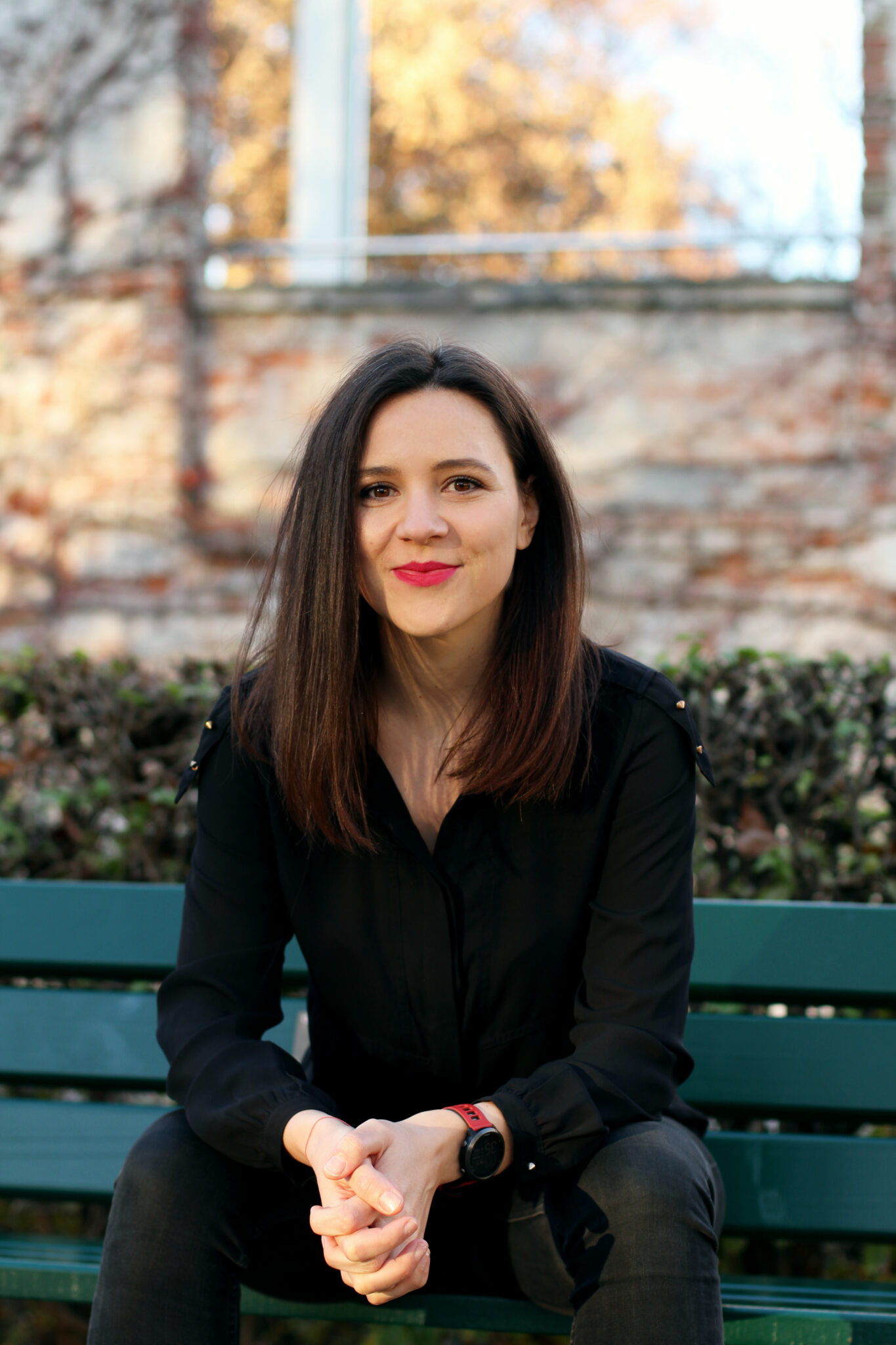
About Catalina Turlea
Catalina is a Software Engineer with more than 10 years of experience in various technologies. She has worked at startups such as Freeletics, Everskill, and TeleClinic. In 2020, she co-founded nilo.health, which provides a solution to help change the way we think and work on our mental health.
As the CTO at nilo.health, she is hands-on and involved in all tech-related topics, including Frontend, Backend, DevOps, and Mobile development. In addition to using technology to build impactful products, she is deeply passionate about identifying potential in people and giving them the opportunity to grow and expand their abilities.
About Author
Elena Dimoska is a communications & marketing enthusiast with great passion to communicate value in a way that reinforces business success beyond revenue growth.
One of her missions as part of TrueNode is to help more well-known brands leverage innovation to make impact. For that purpose, Elena is interviewing innovators from well-established brands across Germany and Europe.






